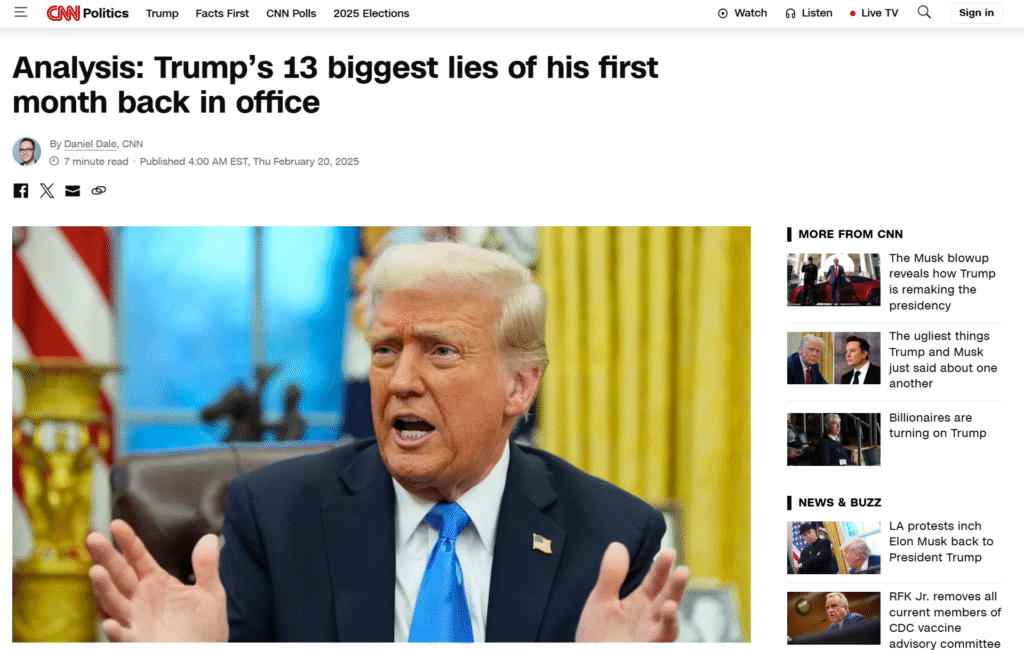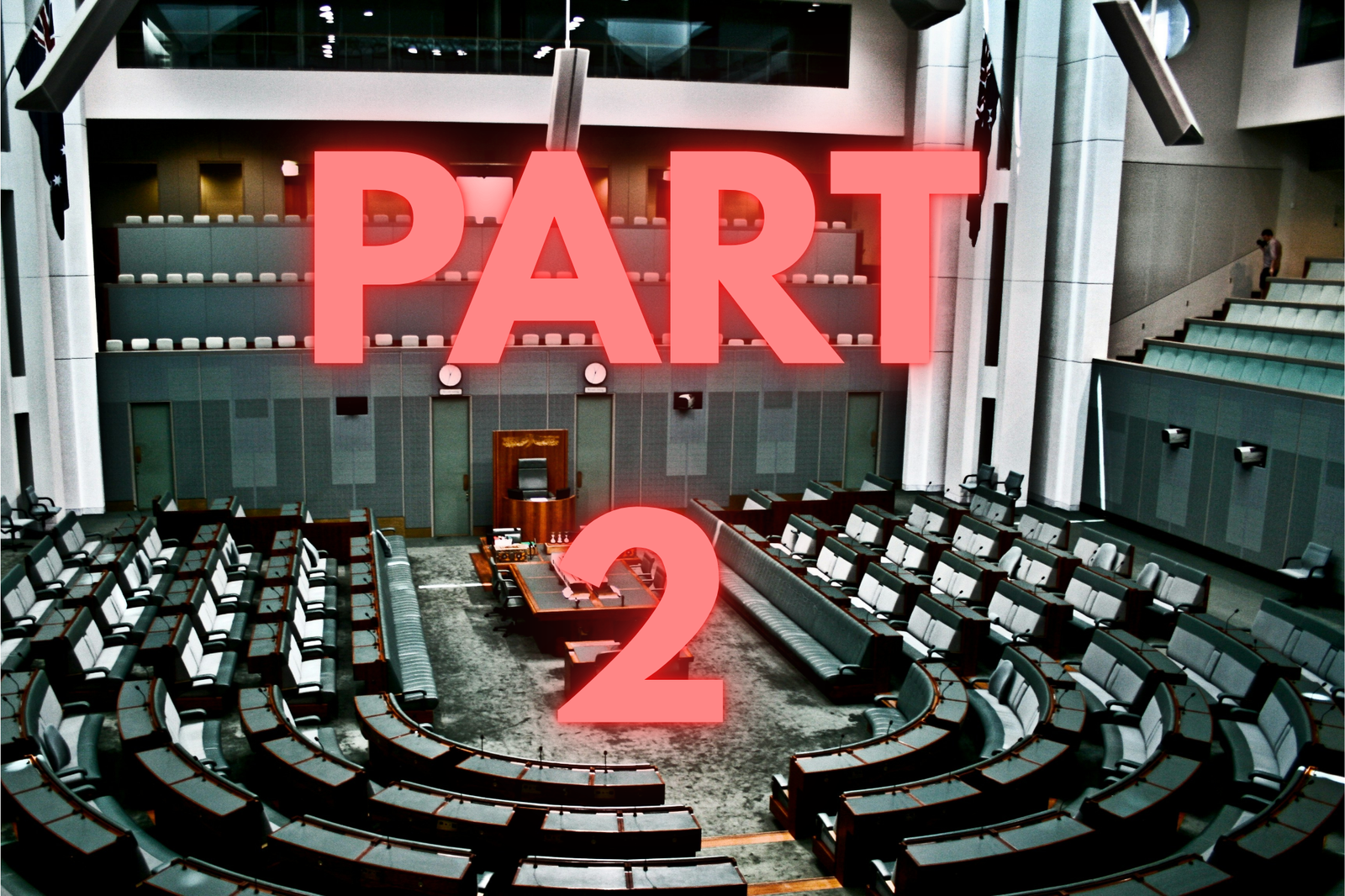This is a continuation of ‘How Stupid People End Up In Power (Part 1).’ If you haven’t checked out the first one, please consider giving it a look.
Smart People Don’t Want The Job
The real curse is that people who could run things well don’t often even try to engage with politics because they know what it takes to wield it properly: compromise, corruption, late-night meetings about emergencies, and daily exposure to stupid questions from stupid people with too much influence.

Smart people see power as toxic. You can start off as a nice person and get eroded to nothing. It requires constant moral gymnastics and means keeping that look of gravitas while secretly wishing someone would just take you out.
Unlike modern takes on presidents, someone like George Washington had to be begged to run for president and then refused a third term, setting a standard that a certain someone wants to break.
Trump says he is not joking about seeking a third term as president
Socrates, the philosopher, avoided politics altogether and was executed for being too reasonable.
Gandalf, in The Lord of the Rings, when offered the One Ring, rejected it right away. He would not even touch the thing. Time and again, my favourite writers, philosophers, thinkers, activists and heroes write about power as something to be feared. Not the way you would a spider, but very much like the Ring from LOTR; it has a mind of its own.
Sadly, culture has produced a society where the people best suited to lead are usually cozied up with a book, avoiding eye contact, and keeping their head down (and on.)
Populism, Charisma, and the Pub Philosopher
People love being spoken to as if they were in an informal setting, like pubs or bars. Even if the speaker slurs nonsense, as long as it sounds familiar, they will raise their glasses and say, ‘He gets it!’
That is how we get the Pub Philosopher Leader. He is the guy who is “just like you,” except he owns five hotels, dodges taxes with the grace and effortlessness of a ballet dancer, and somehow manages to convince the crowd he knows how to “fix the system.”

He may be unable to spell ‘inflation,’ but he can say deranged things during a debate and win the room. It makes you question those who support it, but I digress.
Trump repeats false claim about immigrants ‘eating’ dogs, cats’ in Ohio
This is where populism thrives; it’s never about being right but about sounding relatable, even if you own a Boeing and quadruple your wealth within months of being in office. You tell the people their frustrations are valid, blame a convenient enemy (immigrants, elites, marginalized communities, etc.), and promise to tear down the castles and build schools.

Voters Like Simplicity
Running a country is complicated and should be done by people chosen based on their ability to do so. But that is not how we do things around here, is it? Complexity loses elections, period.
Democracy is great, but it is still built on marketing. The masses want cool slogans, not an hours-long PowerPoint presentation on how to get the country where it wants to be. The moment you pull out that spreadsheet, the voter’s eyes glaze over faster than a tired toddler, and they lose interest.

If you say, “I have a four-point climate mitigation strategy with global cooperation protocols,” they hear, “ugh, nerd!”
If you say something silly like, “Drill, baby, drill!” you get a standing ovation.
Brexit’s winning slogan was ‘Take back control,’ and if you asked ‘of what?’ or ‘what does that mean?’ you would not get an answer. But it felt good to say.
The marketing truth is that simple lies beat complex truth 11 times out of 10.
People don’t want to understand the fire. They just want to yell, “Fire bad!” and find someone to blame.
The Great Paper Chase
In the modern world, we have replaced practical and applicable experience honed over years of practice with degrees, titles, and certificates. These are generally thought to be proof of intelligence, but what they really prove is that you survived the bureaucracy.

Smart people know real knowledge is messy. There are no simple answers. In a system, though, that kind of perspective doesn’t work.
They want clean lines and branded competence. If you have an MBA from an Ivy League school or other local equivalent, you are hired. The other guy (or gal) with decades of real-world logistics experience but no degree is not given a second look.
This is credential inflation, a situation in which you need a certificate to eat, yet the leaders can’t tie their own shoes without an overpaid consultant and a PowerPoint presentation.
Institutional Rot
Does it ever feel like your interactions with government and government services just feel stuck in time? Does it ever feel like it has always been this way? Well, that is not accidental. Once you get some unsavoury people in government, the system begins to rot.
But it doesn’t die right away, and they won’t let it die right away. It will always be on the verge of kicking it, but it will be shocked back to life just enough to keep the grift going. Usually, this is done through higher taxes and austerity measures. Basically, the government reaches into your pocket and takes money out.

The system rots as those in power seek to defend their position. Smart people are threats so they don’t often stay around and don’t you dare think for yourself; that’s subversion. If you are good at your job and ambitious to do more, it can be made to look like treason.
The system begins rewarding loyalty over brilliance. Only the most obedient fools get to climb up. Pretty soon, it is stacked wall to wall with homicidal maniacs who can’t take criticism.
Think of Stalin. He killed the best minds in the military and sciences because they might have known more than he did. Well, they did. That was the point.










